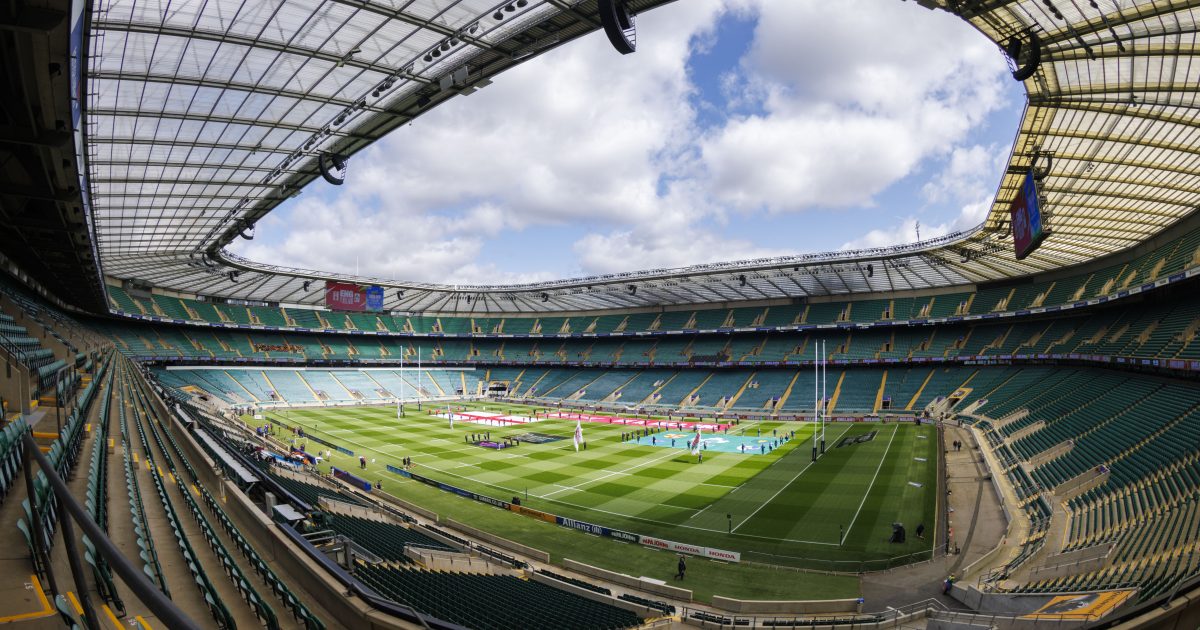La RFU se défend d’avoir « vendu » Twickenham à Allianz

Ça devait être une belle opération destinée à regonfler les caisses peu remplies de la Rugby Football Union, c’est devenu une belle polémique que la RFU tente aujourd’hui d’éteindre.
Lundi 5 août, la fédération anglaise de rugby annonçait fièrement que Twickenham allait changer de nom, succombant à la mode du naming qui touche de nombreux équipements sportifs. A ce titre Twickenham faisait d’ailleurs figure d’exception. D’autres enceintes sportives anglaises très prisées comme Wembley, Lord’s et Wimbledon conservent en effet leur nom historique.
Changer le nom permettait principalement d’injecter une certaine somme d’argent dont la fédération se gardait bien alors de dévoiler le montant. Mais la nouvelle n’est pas passée auprès des puristes pour qui le temple de Twickenham devait rester Twickenham. Au même titre que Lansdowne Road n’aurait pas pu être rebaptisé. Le fait d’avoir reconstruit un stade (pourtant au même endroit) et de l’avoir nommé Aviva (tiens, un autre assureur) a peut-être mieux fait passer la pilule.
Or, dans le cas de Twickenham, aucune démolition ni reconstruction n’est prévue (contrairement à ce qui avait été un temps envisagé à l’origine). Juste une rénovation plus ou moins importante en fonction du coût considérable que cela représente.
Une rénovation complète du stade coûterait 663 millions de livres sterling. La RFU a opté pour la solution minimale qui coûte quand même près de la moitié.
Un deal à 100 millions de livres
Or, la polémique, comme on pouvait s’y attendre, a enflé en quelques heures, forçant Bill Sweeney, le patron de la RFU, à nier que la fédération anglaise avait « vendu » le stade au géant de l’assurance allemand, Allianz.
Tout juste l’assureur a acheté les droits de dénomination de Twickenham pour plus de 100 millions de livres sterling au total (près de 117 millions d’euros), soit un tiers du coût de la rénovation où cet argent n’ira d’ailleurs pas.
À partir du 1er septembre donc, le stade de 82 000 places sera connu sous le nom d’Allianz Stadium. Il s’agit de son premier changement de nom depuis son ouverture en 1909, et l’accord permettra d’injecter de l’argent dans le jeu élite et dans le rugby amateur, selon les pardessus.
Le Directeur général de la RFU a révélé que ce partenariat d’une durée de dix ans apportera plus de 10 millions de livres sterling par an, à un moment où le sport est confronté à d’importants défis financiers.
« Je ne crois vraiment pas que nous l’ayons vendu », a insisté Bill Sweeney sur la BBC. « C’est un stade emblématique, c’est la maison du rugby. Les expériences vécues ici sont incroyables, les gens adorent venir ici.
« Mais nous pensons que cela nous aidera à construire l’héritage du stade et nous permettra de nous projeter dans les décennies à venir. L’investissement d’Allianz nous permettra de faire de Twickenham une expérience encore meilleure pour les supporters et les joueurs.
« Nous pensons qu’il s’agit d’un investissement pour l’avenir avec le type de partenaire dont nous avons besoin pour poursuivre cette aventure. C’est de l’argent que nous devons réinvestir dans le rugby. Il s’agit d’un engagement pluriannuel et d’un montant largement supérieur à 100 millions de livres sterling, ce qui représente une valeur équitable par rapport à ce que l’on peut attendre de nos jours pour les droits de dénomination des stades. »
Twickenham est désormais le huitième site sportif dans le monde à porter la marque Allianz et la RFU est la dernière des quatre fédérations britanniques à vendre les droits d’appellation de son stade mythique, négociant au passage un accord plus lucratif que ses adversaires.
Selon l’agence de presse PA, conserver le nom « Twickenham » dans le titre n’était même pas une option si un accord avec Allianz devait être conclu.
« Le nouveau nom s’aligne sur notre approche des autres partenariats de stade à travers le monde et, au fil du temps, il signifiera que le nom Allianz Stadium est adopté plus complètement », a déclaré un porte-parole d’Allianz à l’agence PA.
« Nous reconnaissons que Twickenham possède un héritage extraordinaire et nous avons hâte de contribuer au développement de ce lieu emblématique pour l’avenir.
Le premier match disputé à Twickenham sous son nouveau nom sera le match des Red Roses contre la Nouvelle-Zélande, le 14 septembre prochain.
La Coupe du Monde de Rugby Féminin 2025 en Angleterre approche. Cliquez ici pour acheter vos billets.























































